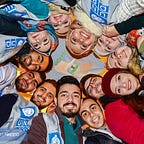Facing Disability with Determination
In Syria, 11-year-old Hanin takes a step forward with support from Japan-funded UNDP disability programme
Hanin Samer Eyadah was just five years old when a shell exploded and lodged a piece of shrapnel into her left leg in her hometown of Deir-Ez-Zor in eastern Syria.
“My body was covered in blood,” recalls Hanin, now 11. “I looked down, discovered my leg was not there, and burst into tears.”
With her leg amputated, confined to a wheelchair, and unable to go to school, Hanin quickly became isolated. Her family found it difficult to overcome the new challenges they faced in a country in which disability is still stigmatised and support is limited — despite the fact that 28 percent of the population aged 2 and over live with some form of disability.
“It was hard,” says Rana Al Deleh, Hanin´s mother. “I felt very sad watching her become so helpless at such a young age.”
From Wheelchair to Walking
With violence continuing in her area, Hanin was sent to UNDP´s prosthetics workshop in Damascus. Run in partnership with the Relief and Development Center, a Syrian non-governmental organisation, the workshop receives generous funding from the Government of Japan as part of its focus on promoting human security, a concept that guides Japan’s development cooperation and underpins all UNDP programming towards achievement of the Sustainable Development Goals (SDGs). This concept promotes the right of all individuals — including the most vulnerable, like Hanin — to live happily and in dignity, free from fear and want, via their protection and empowerment.
At the workshop, Hanin was fitted with her first prosthesis and offered physical and psychosocial therapy. With the determination and energy of youth, she was back on her feet almost immediately and was soon in school again and walking to class every day.
But like most children with an amputation, Hanin quickly outgrows her device and needs a new limb each year. On occasion, instability has prevented her from travelling for treatment, forcing her to abandon her prosthetic and revert to crutches. To avoid this, UNDP now provides additional assistance and covers the costs associated with each medical visit.
Stepping Up Support
While Hanin is striding ahead, other persons with disabilities across Syria struggle to access regular care and are at risk of further health issues, violence, and marginalisation. In response, UNDP is working closely with communities in Damascus, Aleppo, Tartous, and Qamishli to run five prosthetic and rehabilitation workshops, and has provided lower limb prosthetics to 650 people over the last six years.
Part of UNDP Syria´s wider Disability Inclusion Programme, these workshops contribute to broader initiatives to empower persons with disabilities and their communities to reduce inequality and build resilience.
“As per the SDGs and the Convention of the Rights of Persons with Disabilities, our programme helps enable persons with disabilities to exercise their fundamental human rights including health, food, education and employment” says Louay Fallouh, UNDP Syria project manager. “However, with over a decade of crisis, the Covid-19 pandemic further constraining access to already limited healthcare services, and over 100,000 people with amputations still requiring rehabilitation care, additional support is needed urgently in Syria.”
With characteristic perseverance, Hanin is already planning how to contribute to this effort. “I want to be a journalist, to write about people who have lost their legs, and help them become active in their communities,” she says. “Like me, they have the right to follow their dreams.”
